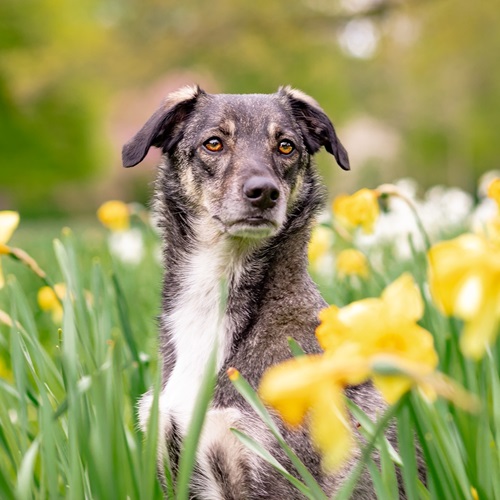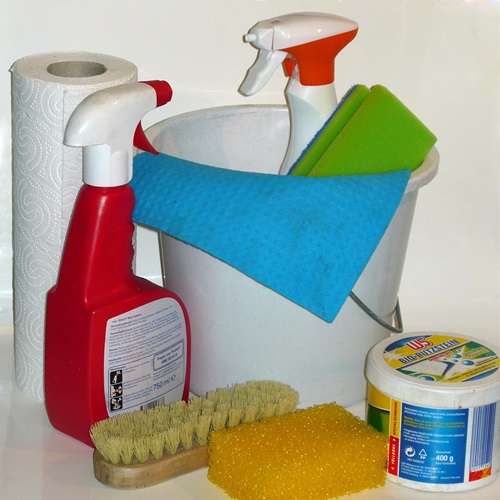Common Flowers & Plants That are Dangerous to your Dog
Dogs like to chew and eat things, especially plants and flowers, however some can cause serious illness, vomiting, or even death if ingested. It’s important to know which flowers and plants are dangerous to your dog so you can keep them safe and out of harm’s way. These flowers and plants should be kept out of your house and yard to help protect your pup. Learn how to identify them so you can avoid these flowers plants while out for a walk, at the park or taking a hike in the woods.
Autumn Crocus
These plants bloom in the fall and have colchicine, a very poisonous substance. Dogs that eat them can suffer from vomiting, bleeding in the stomach and intestines, damage to the kidneys and liver, and trouble breathing.
Begonia
These plants are very common and are often grown in pots and have tubers that if eaten or chewed can irritate a dog’s mouth and make it hard to swallow.
Chrysanthemum
These popular flowers have lactones and pyrethrin, which can upset a dog’s intestines. They are not deadly, but dogs that eat them can experience vomiting, diarrhea, excessive drooling, irritation, rashes on the skin, and poor coordination.
Daffodil
Another very common flower. Eating any part of the plant, especially the bulb, can make a dog very sick. They can experience vomiting, drooling, shaking, trouble breathing, seizures, and heart problems.
Foxglove
These flowers are tall and beautiful, but very dangerous to dogs and can even be deadly. Eating them can cause heart problems, the heart to stop working and even kill the dog.
Geranium
These plants are common in pots and are poisonous to dogs. Dogs that eat them can see the following symptoms – tiredness, low blood pressure, rashes on the skin, and little to no appetite.
Iris
Eating any part of the plant can make a dog’s skin, mouth, stomach, and intestines irritated. They experience drooling, diarrhea, vomiting, and tiredness.
Lily
There are different kinds of lilies and they have different levels of toxicity. Some can make a dog’s stomach upset, while others can release substances that burn and hurt a dog’s mouth and stomach. The symptoms can be mild or severe depending on the variety.
Lily of the Valley
A popular outdoor plant used frequently in home landscaping. Eating this plant can cause diarrhea, vomiting, a slow heart rate, and irregular heartbeat.
Tulip and Hyacinth
The bulb is the most poisonous part, but any part of these flowers that bloom early can harm a dog. They can irritate a dog’s mouth and throat. The usual symptoms are drooling too much and vomiting. A quick trip to the veterinarian can help the dog recover with no lasting effects.
Aloe Vera
This plant has thick leaves and can make dogs vomit, have diarrhea, and shake when ingested.
Holly
This plant is often used for decoration around the holidays or planted as bush in your landscaping. It can make dogs drool, throw up, have diarrhea, and feel lethargic when they eat it.
Ivy
This plant grows on walls and can hurt a dog’s skin, mouth, and stomach when eaten by your dog. Ingesting ivy can cause swelling, aches, and trouble breathing.
Oleander
This plant has colorful flowers and can affect a dog’s heart when they eat it, causing them to have an irregular heartbeat, low blood pressure, and faint.
Sago Palm
This plant looks like a small palm tree and can damage a dog’s liver or even kill them if ingested, even if only small amounts are eaten this plant is extremely toxic.
Poinsettias
They are mildly toxic to dogs, but this plant hardly ever causes serious illness or is fatal. The milky white sap found in poinsettia stems contains a chemical similar to those in household detergents. When ingested in large quantities, mild signs of vomiting, drooling, or sometimes diarrhea may be seen.
If you feel your dog may have ingested a harmful flower or plant, make sure to call your veterinarian right away to get the best treatment advice. If your puppy or dog is experiencing any of the above symptoms get them to an emergency clinic right away.




